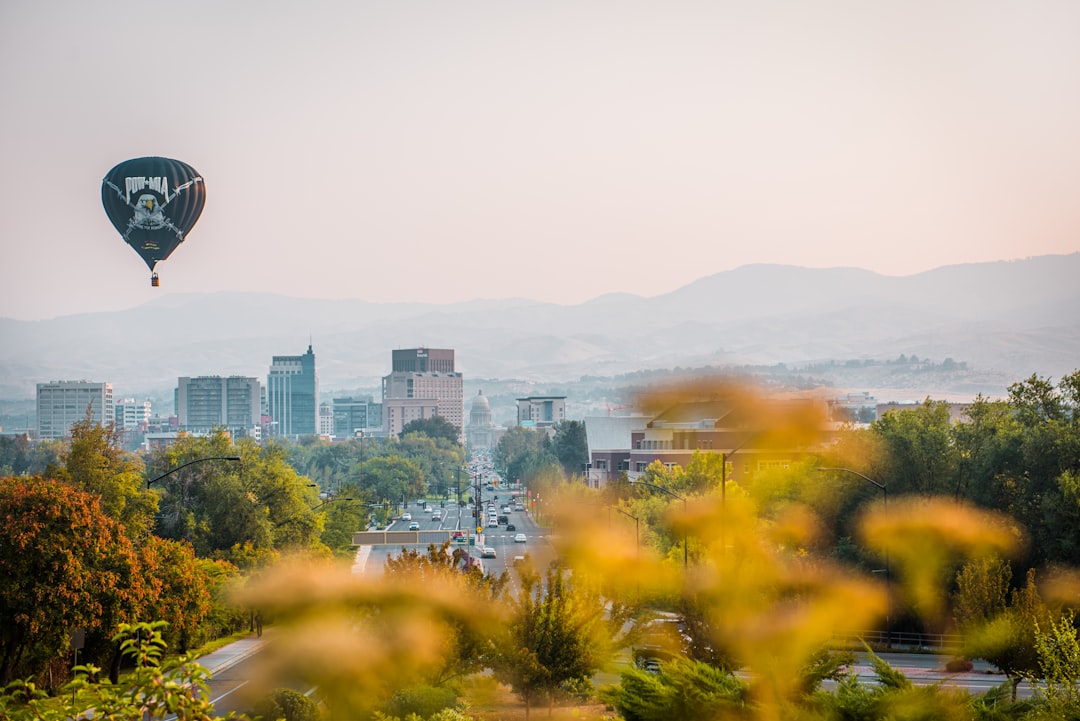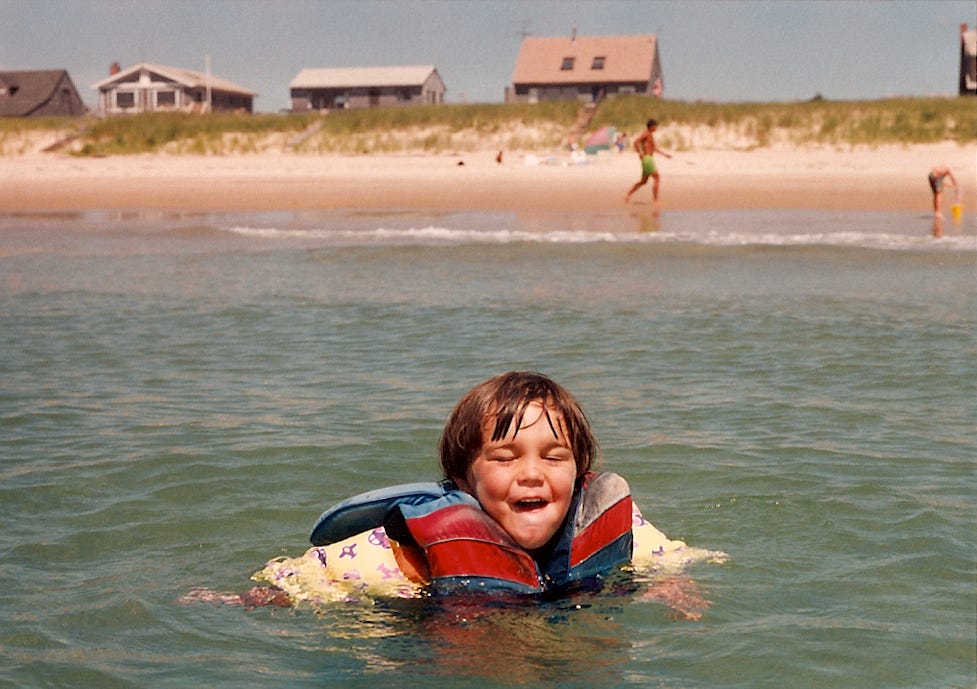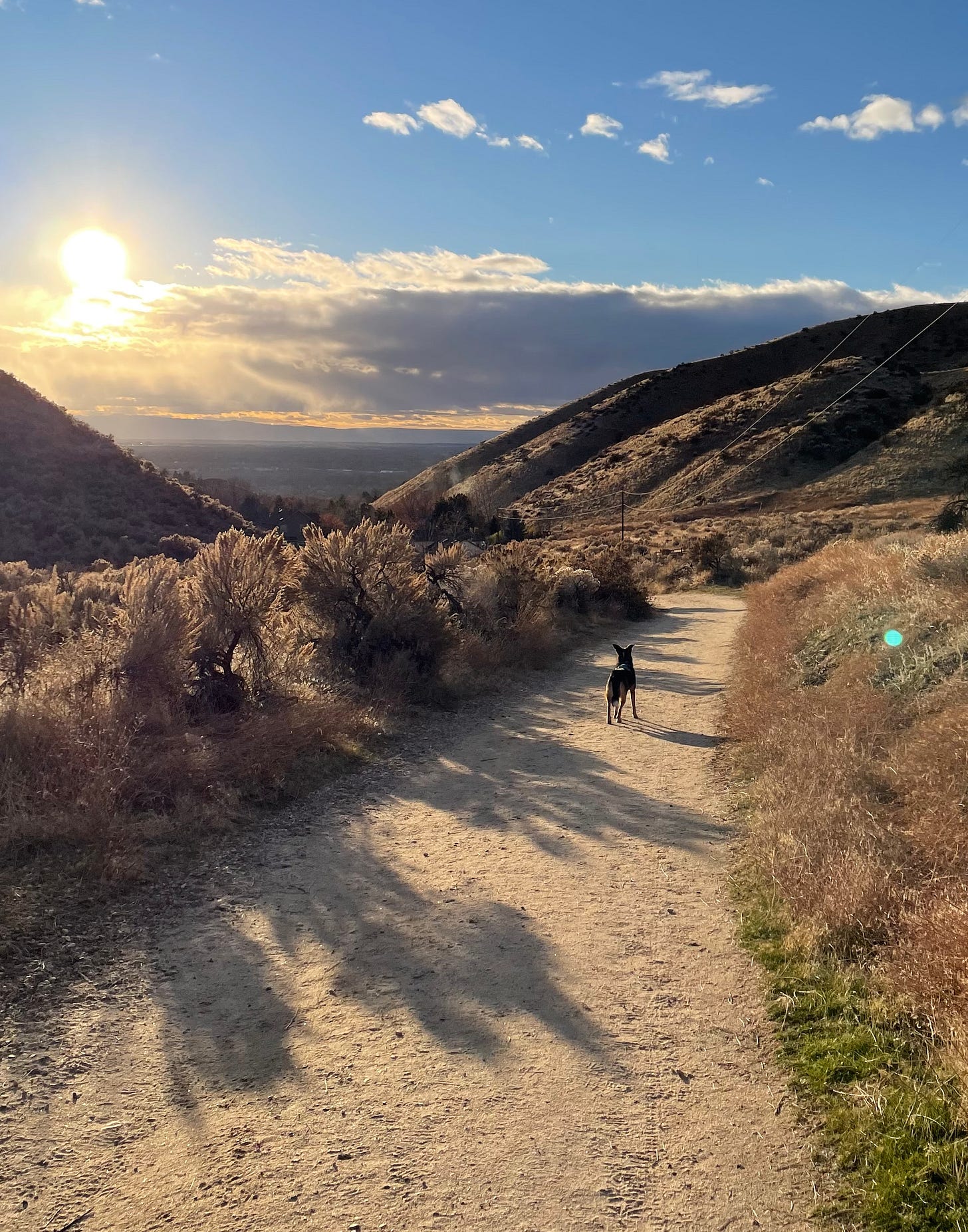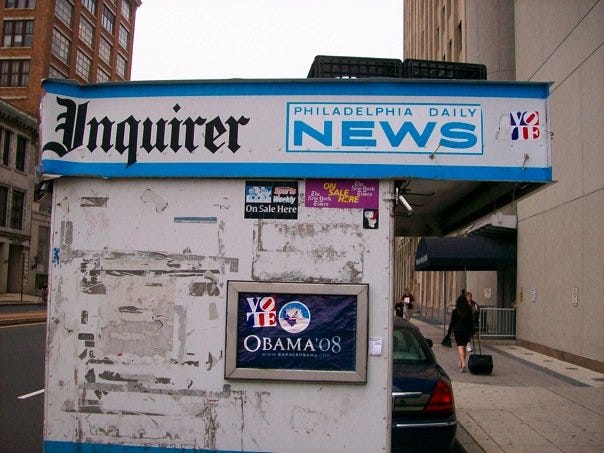Hey, you’re here—I’m glad to see you! Thanks for joining me on this new adventure.
If you don’t know me already, my name is Charlie Hunt, and I’m a political scientist. I have a PhD in Government and Politics, and I teach at Boise State University. I do research, mainly about Congress, elections, representation, and the intersections of all of these with the subject of this newsletter: place.
Location; hometown; the street we grew up on; our kitchen table. The little blue dot in Google Maps. Where we live and where we are local. As a people, we benefit from a vast collection of terms, trinkets, and technologies that help us talk about where we are.
For example, I live in the northwest part of a city called Boise, which is the seat of Ada County, in the State of Idaho, in the intermountain west region of the United States, on a complicated continent, on an even more complicated, bewildering, and slowly smoldering planet. For your sanity and mine, let’s not zoom out any further (not just yet, anyway).
Probably not a lot of you have ever been to Idaho, and even fewer of you have lived here. I’m going to talk a good bit in this newsletter about my adopted home, because, well, that’s where I am. I’m happy to say that I love living here in Boise. It has a well-maintained bike path called the Greenbelt that runs roughly East-West, many miles through the heart of a small but vibrant (and rapidly growing) city. It has a top-notch university that was foolish enough to hire me, and an equally-foolish community radio station that lets me co-host a weekly public affairs show. It also has a pretty obscene number of breweries, a fair few of which are quite good. I didn’t know it yet when I moved here back in 2019, but it turned out to be home to some of my closest friends. It also had the person who would become my wife.

Also, on New Years, we drop a giant potato instead of a shiny ball, so that’s pretty rad.
But like many others, the place I live now isn’t the only place that matters to me. In fact, I grew up about as far away from Idaho as you can while still being in America: our smallest state, Rhode Island. It has gorgeous beaches where I spent summers as a kid; tough, snowy winters that apparently build character; a truly spectacular history of political corruption; and a diner in my hometown of Woonsocket where a guy stacks a half dozen hot dogs on his arm so he can apply condiments to them efficiently. Taylor Swift lives there sometimes.

These kinds of practices, attachments, and memories probably sound familiar to you even if you’ve never been to Idaho or Rhode Island. You probably like some things about where you live, or even find deep joy there. You probably dislike other parts of your homeplace, or are even mortally threatened by them. Other parts still might just be mystifying, confusing, or impossible to relate to.
You probably have also observed the ways in which where you live is defined by its politics, and how your politics are defined by where you live. Maybe your polling place is a short walk from your home; maybe it’s a half-hour drive across the county. Maybe new government-funded infrastructure is popping up everywhere you look and exploding your state’s economy; or maybe your hometown has stagnated for years, with no end in sight.
Maybe you’re a Democrat who lives in a red state, but the progressive city you call home softens the blow. Maybe you’re a Republican in that same blue city, surrounded by neighbors you feel as though you’ll never, in a million years, be able to relate to. None of you are alone, and I suspect that all of you might be better able to understand the incomprehensible politics of our time with a better sense of where you are.
I’m a political scientist by trade, and do have a modicum of expertise in the field. So, yes, a lot of this newsletter is going to be about politics. I’ll dig deep on place-based political questions like redistricting, geographic sorting, nationalism, and why candidates for office continue to insist on running where they have no connections whatsoever. This will be the bulk of what you find in this newsletter, including in my first real post this Friday on the Electoral College, and why it’s an absolute disaster for place representation.
But we also know—intuitively, I think—that where we are, the places we value, and the ways we interact with our local areas go way beyond politics. So you can also expect me to dip into subjects in which I’m not an expert (because nobody’s ever gone wrong doing that), but which evoke a lot of the same feelings and connections that inform how I think about politics. Yes, I’m thinking about how place and locality intersect with related fields like sociology, economics, and demography. But you can also expect some poetry, music, and visual media that bring out our sense of home, and can help us understand the world we live in—and the world we wish we lived in.
I promise that whenever possible, I’ll stay in my proverbial lane by including comments, quotations from, and even interviews with experts in these areas so that I can keep the “talking out of my ass” to the bare minimum. I’ll also invite others with diverse place experiences, setbacks, and perspectives to create new understanding of these questions, and to offer possible answers.
And this, I think, is why the study of home and place (both academic and personal) is so important to me, and why I hope it might be important to you, too. We live in a world increasingly defined by big, homogenous teams, with noisy labels designed to flatten our differences and decimate our individuality. Nothing exacerbates this dulling, disappointing sense that we have nothing unique to offer more than the Internet, which I’m predicting will also be a main character in this confusing but crucial story.
Our places, however, confound these efforts in ways that—whether we like them or not—still matter enormously. By definition, where we’re from and where we live makes us unique. Thousands of others—probably millions—share your party affiliation, your race or ethnicity, even your sexual orientation and gender identity. Literally nobody shares your exact place journey. It’s yours, and it matters: to politics and beyond.

We’re all from somewhere. Let’s go there together.
Thanks for reading! If this newsletter feels like your cup of tea/coffee/water/whiskey, I hope you’ll consider subscribing so that new posts can come directly to your email inbox.
At this time, a You Are Here subscription is 100% free. You can expect longform posts every other Friday. These ones will always be free, no matter what happens down the road. I’ll also be posting shorter thoughts on off-weeks with poems, stories, and links to the best place-related stuff I’ve been engaging with recently.
As the newsletter expands, I’m hoping to build out different and more frequent kinds of writing projects, comment threads, topic suggestions, and bonus posts. I welcome post ideas, new content types (Q&As? Podcasts? Roundtable discussions?) from those of you who might be interested in that down the road. At that time, I’ll consider asking readers to support this venture with those gold tokens that I can use at Spacebar Arcade in Boise, or else with some actual American currency.
In the meantime, though, I hope you’ll consider forwarding this along to a friend or colleague who might enjoy it and encouraging them to subscribe. You can also share it on whatever social media site we’re all currently using by clicking on the button below.
If you’re reading this in your inbox, you can find a shareable version online here. You can find me on Instagram and Threads (@charliehunt) if you want to see pictures of my dog, and on LinkedIn if you want to know exactly what years I worked at Dunkin’ Donuts as a teenager. Or you can always email me at charles.r.hunt@gmail.com.






I'm in, Charlie! And welcome to Substack! I've been here for just over a year and write about the genre of Place Writing, so I'm really interested in your take on the subject. I live in the UK and, with family having recently moved to Nevada, I cross the pond regularly. Consequently, I want to learn more about the way America works and I think your Substack will do some enlightening. Good wishes for 'you are here.' - what a great title!
This sounds fascinating, Charlie! I'm used to writing about place from the perspective of landscape, nature, culture, and history, but it makes so much sense to look at how that same sense of identity intersects with politics and all the other things you named. Also, I spent my last couple of years of high school and all the home visits since in rural southeastern Idaho, and have found Idaho to be severely under-written-about, so I'm excited to hear your thoughts on the state!